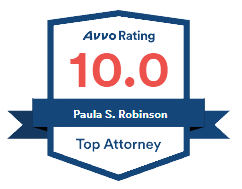Recently, the Northeast was hit with plenty of potentially toxic smoke from Canadian Wildfires miles away. With it being such an unprecedented and unique situation for many, workers were unprepared, and many simply continued their days as normal. As a result, it’s an excellent time to discuss air quality, smoke inhalation, and how workers’ compensation can potentially bring you a reprieve if some threaten your work life.
Understanding Smoke Inhalation Injuries
Smoke inhalation occurs when you breathe in harmful smoke particles and gases, which can cause significant damage to your lungs and other parts of your respiratory system. This is a common occurrence in industries such as firefighting, manufacturing, and construction, where workers are often exposed to fires or chemical fumes. Symptoms can range from minor respiratory issues to severe conditions such as bronchitis, pneumonia, and even acute respiratory distress syndrome (ARDS).
Smoke Inhalation Signs and Symptoms
One of the most common signs of smoke inhalation injuries is coughing. Many people experience coughing after inhaling smoke, which can irritate the throat and airways. Coughing is the body’s way of trying to remove any harmful substances from the lungs, but if the person continues to cough persistently, you should call for medical help.
Another symptom of smoke inhalation injuries is shortness of breath. Smoke inhalation causes the airways to constrict, making it difficult for the person to breathe. This can result in a feeling of suffocation or tightness in the chest. If not appropriately treated, shortness of breath can lead to respiratory failure, which is life-threatening.
Additionally, smoke inhalation can cause nasal congestion, hoarseness, and sore throat. The person may also experience headaches, dizziness, and confusion. If the individual has been exposed to high levels of carbon monoxide (CO) in the smoke, they may develop symptoms such as nausea, vomiting, and loss of consciousness.
Workers’ Compensation for Smoke Inhalation Injuries
In Pennsylvania, workers’ compensation laws cover injuries and illnesses that occur as a result of your job duties, including smoke inhalation injuries. If you’ve suffered from smoke inhalation while performing your job, you are likely eligible for workers’ compensation benefits. These benefits can cover medical expenses and lost wages if you’re unfortunately unable to return to work.
Steps to Take After a Smoke Inhalation Injury
Many wonder what to do if they inhale traces of smoke that cause bodily harm. If you’ve inhaled smoke at work, it’s crucial to take the following steps:
- Seek Immediate Medical Attention – Your health should be your first priority. Seek immediate medical attention and make sure to inform the healthcare provider that your injury is work-related.
- Report the Incident – Notify your employer about the incident as soon as possible. Be sure to provide all the details about how and when the injury occurred.
- File a Workers’ Compensation Claim – Submit a workers’ compensation claim with the help of a qualified workers’ compensation attorney. This will initiate the process of obtaining your benefits.
- Follow Your Doctor’s Advice – Follow your doctor’s treatment plan closely and attend all follow-up appointments. This is critical not just for your recovery but also for your workers’ compensation claim.
Manage Smoke Inhalation and Other Workplace Injuries With Robinson Law LLC
Navigating the workers’ compensation system can be complex, especially when dealing with the aftermath of a smoke inhalation injury. An experienced workers’ compensation attorney like Paula Robinson can guide you through the process, ensuring your rights are protected and you receive the benefits you deserve.
At Robinson Law LLC, we understand the intricacies of workers’ compensation laws in Pennsylvania. We are dedicated to advocating for injured workers and helping them navigate the complex legal process. If you’ve suffered from smoke inhalation or various other injuries, contact our workers’ compensation attorney in Doylestown, PA, and across the state today to discuss your case and how to get the support you deserve.









